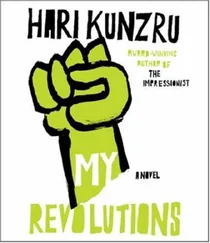As strict as Fray Garcés may be in the conduct of marriage investigations, interrogating the prospective bride and groom and enjoining them to tell the truth or suffer the pains of hell, the nature of carnal sin is a profound mystery to the savages. This alone should be enough to justify the good father’s use of that authority that God concedes to parents for the proper education of their children, to reprimand and chastise them with the rod. Like the beasts of the field, they have no sense of shame in their nakedness. I have seen a woman leaving the Mission, and when she thinks she is far enough away not to be observed, shucking off her sackcloth shift like a snake discarding a skin. Whenever Fray Garcés observes his charges in such conduct, he whips them soundly, though in his employment of the lash he is stricter upon himself than upon his children, taking the discipline daily, not merely on those days customary to his order. The Indians’ ignorance of all things is unsurpassed. Having never seen women with the Españoles, the Papagos of the outlying rancherías first conjectured that the friar and his escort were the offspring of their mules.
While recuperating last year at Tubutama, Fray Garcés wrote an account of his wanderings among the gentile nations of the frontier, though, from hints he has given to me in conversation, I believe that, while accurate in most particulars, this manuscript omits much detail, particularly concerning the physical and spiritual trials inherent in such a journey. He claims to have found more than twenty-five thousand Indians on the banks of the Río Gila and Río Colorado, and to have cleansed them, turned them toward repentance and prepared them for receiving the Word of God and vassalage to His Catholic Majesty Don Carlos III, may the Lord preserve His name. It must be noted that on these travels Fray Garcés was frequently alone, hundreds of leagues distant from any other person of reason. His exaltation in holy poverty notwithstanding, I believe that, being far from human sight, he became lax in certain of his observances, and it is perhaps for this reason that he has lately adopted the strictest possible version of the rule of his order, to the extent that the Father Guardian of the Apostolic College of Santa Cruz de Queretáro has three times denied him permission to undertake certain fasts and acts of self-mortification that, in the heat of his ardor, he fervently desired to perform, enjoining him to find other penitential exercises, less deleterious to his health and his ability to discharge his duties at the Mission.
Fray Garcés has declared himself astonished at the roughness of the country on the other side of the Colorado, and the great obstacles God has fixed therein. Water is scarce, and wells must sometimes be dug out of the sand. At one such place he was confronted by a hostile band of Jamajabs and, having no means to defend himself, was resigned to martyrdom, when God inspired him to display a painting that he carried with him rolled in a wooden tube, depicting the Blessed Virgin and child. At the sight of Our Lady, the Indians prostrated themselves in great wonderment and then departed, leaving him to drink his fill. In celebration of this moment, in which he grabbed his salvation by the forelock, he named the well Kairos . Another sign vouchsafed him by the Lord on his wanderings was a representation of the Trinity, in the form of three vast spires of stone, Father, Son and Holy Spirit rising up out of the desert floor as a symbol of divine mercy and grace. At this place, he encountered an angel in the form of a man, who conversed with him and revealed certain mysteries. He appears troubled yet by this encounter, and, having once told me the story, apologized for it, saying certain things ought to remain in silence. Though I bade him continue, he declined, and I am of the opinion that he is uncertain as to whether this apparition came from Our Lord or the Enemy. Though he is reluctant to speak of his own miraculous experiences, Fray Garcés has much to say of the famous religious María de Jesús de Agreda, who was transported by angels to preach to the heathen of Alta California. He himself has met and conversed with old men among the Jamajabs and Chemeguabas who claim to have heard of a flying priest who came a hundred years ago to bless their people in the name of Almighty God. On his wanderings, Fray Garcés became convinced that previous preachers had prepared the souls of the heathen for his arrival, and he has hopes for great conversions once we expand our territory and link the missions of Sonora with those of Alta California.
I have now remained two months at San Xavier del Bac, and will this day depart for the Presidio of Tucson, there to wait for your orders, señor. Two small incidents have soured my relationship with Fray Garcés, and it is no longer possible to remain without strife. One of my muleteers had carnal knowledge of a young Indian woman, soliciting her with tortillas and a piece of ribbon. The friar holds me responsible for this, and for the excessive zeal of one of my escorts in flogging a neophyte who stole a piece of leather harness. Fray Garcés blames me for the surliness and unrest provoked among his peers by the fellow’s demise. Though I placed the offending corporal on guard duty for eight successive days, wearing five leather cuirasses, a serious enough penalty in this summer heat, it did not suffice to mollify the good father, who has the typical arrogance of the Franciscan, feigning humility but alive to any degradation or abrogation of his powers. It is here as it is elsewhere. Every challenge to Franciscan authority is held to be an assault on their holy mission. At the Presidio, the captain complains that Fray Garcés refuses to send his neophytes to them to labor and so soldiers are forced to perform manual tasks, such as working the mill and pressing adobes, contrary to their dignity as Españoles.
I have come to know Fray Garcés very well. A true mendicant friar, he trusts completely in God and derives great joy, if not always a true sense of Christian brotherhood, from his converse with the natives, whom he genuinely appears to love and calls his children. His frustrations are many, and he often likens his work among the Papagos and Pimas to grinding ore in an arrastra to extract silver. He wishes to remain in sole charge of his scattered flock, and shows no interest in expediting the advancement of the status of the Mission to a doctrina. In any case, the realization of this change is impossible to imagine, at least for several years. The natives are incapable of acting in their own best interests, and it will be some time before secularization is appropriate.
In the discharge of their Royal patronage, ardent desire for the prosperity of both Church and State has caused our monarchs to issue many wise pronouncements, not least of which, señor, was your appointment to the exalted office you now hold. The high regard in which I hold the superior person of Your Excellency leads me to believe that you will be sympathetic to my request now to be discharged from my duties and to return to my wife and family in Vera Cruz, which place I have not seen these last nine months. It is my humble desire that Your Excellency may derive benefit from this report. I remain your most obedient servant
Juan Arnulfo de Flores y Rojas, Hidalgo de Vera Cruz
Presidio del Tucson, August 21st, 1778
For a moment Jaz thought he’d disappeared. But there he was by the pool, trailing poor bedraggled Bah behind him, standing like a little sentry over a sleazy-looking guy sacked out on one of the daybeds. Jaz hurried across the courtyard, careful not to slip on the wet tiles. Raj was at his most withdrawn, rocking slightly, his fists balled, his neck twisted around in the painful-looking S that always made him look like he was trying to bury his head in his armpit. The man lolled sideways, one skinny arm thrown out toward an empty tequila bottle that lay on its side on the concrete. He was dressed in tight bright clothes, like the hipster kids you saw cycling round Williamsburg. He seemed to be unconscious. The more Jaz saw, the less he liked: the straggly beard, the tattoo snaking up one side of his neck, the spots of blood on his pants; there was dirt in his hair, a film of it on his skin, as if he’d been rolling about on the ground. Just then he woke up. He looked startled to see the two of them beside him. Jaz tried to put a more neutral expression on his face.
Читать дальше












